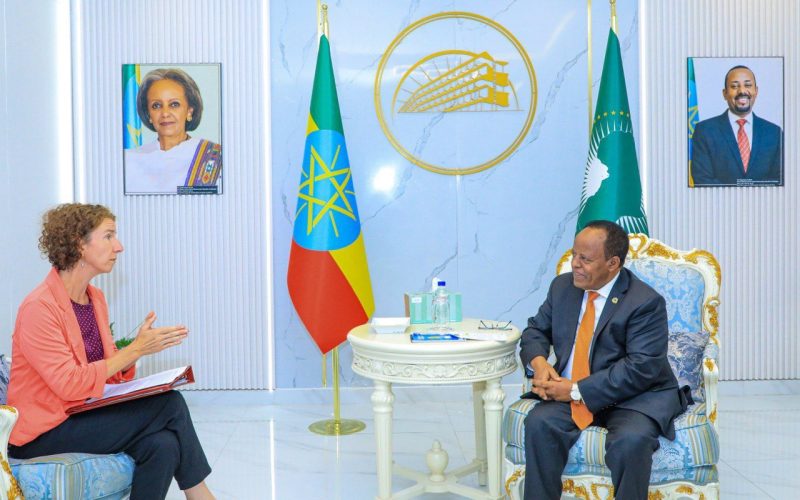UK Expresses Concerns Over Ongoing Conflict in Ethiopia’s Amhara and Oromia Regions
The United Kingdom’s Minister for International Development, Women, and Equality, Anneliese Dodds, recently visited Ethiopia, where she engaged in high-level discussions with Ethiopian officials.
During her one-day visit to Addis Ababa, Minister Dodds met with Ethiopian Foreign Minister, Ambassador Taye Atske Selassie, to address several pressing issues, including the ongoing conflict in Ethiopia’s Amhara and Oromia regions.
In an official statement released by the UK Foreign Ministry following the visit, the British government expressed deep concern over the escalating conflicts in these regions.
The statement highlighted the detrimental impact of the violence on civilians, urging all parties involved to seek peaceful resolutions through dialogue.
The UK reaffirmed its commitment to supporting Ethiopia’s peace, security, and economic development during Minister Dodds’ discussions with Ambassador Taye.
The visit also underscored the UK’s intent to strengthen its cooperation with Ethiopia under the new government of Prime Minister Keir Starmer, who took office a month ago.
Prime Minister Starmer’s administration has emphasized its desire to collaborate with Ethiopia on various fronts, including human rights, poverty reduction, climate change, and economic development.
During her time in Addis Ababa, Minister Dodds also held discussions with Bankole Adeoye, the African Union’s Peace and Security Commissioner.
Their talks focused on broader peace and security issues across the continent, with particular attention to the situations in South Sudan, Somalia, and Sudan.
Before her visit to Ethiopia, Minister Dodds traveled to South Sudan, marking her first official trip since assuming office.
Her visit to Ethiopia comes at a critical time, as the international community continues to monitor the situation in the Amhara and Oromia regions closely.
Last year, the UK, along with the United States, Australia, Japan, and New Zealand, voiced their concerns about the violence in these regions, which has led to significant civilian casualties and widespread instability.
In a joint statement, these governments urged all parties to prioritize the protection of civilians, respect for human rights, and the peaceful resolution of complex issues.
The conflict in Amhara and Oromia stems from the federal government’s decision to reorganize regional Special Forces, a move that has sparked tensions and led to a prolonged struggle.
In response to the escalating violence, the Ethiopian government declared a six-month state of emergency in August 2023, which was later extended for an additional four months.
As the state of emergency nears its conclusion, the situation remains volatile, with thousands of workers displaced and facing economic hardship.
The international community continues to advocate for long-term stability in Ethiopia, recognizing the need for sustained efforts to resolve the underlying causes of the conflict and support the nation’s path toward peace and prosperity.
